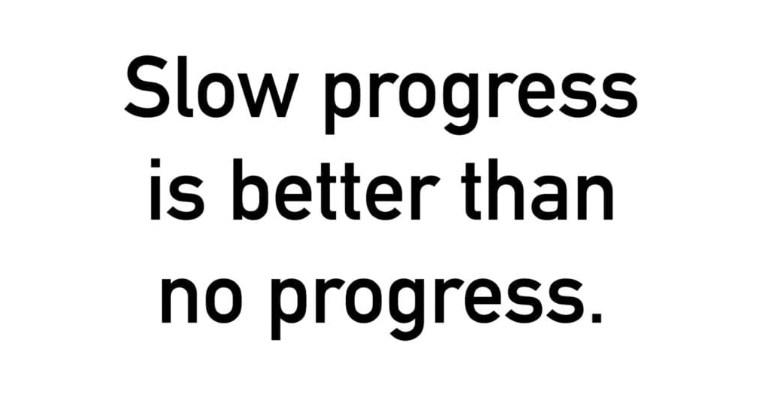HOW TO TRACK PROGRESS WITHOUT OBSESSING OVER THE SCALE
fitness Nutrition Mindset May 26, 2025 11:38:31 AM Kyle Receno 6 min read

How to Track Progress Without Obsessing Over the Scale
When most people think of “fitness progress,” their first thought is:
“What does the scale say?”
But here’s the hard truth:
The scale tells a very small part of the story — and sometimes, it even lies.
If you’ve ever felt discouraged by the number on the scale, despite feeling stronger, leaner, or more energized, you're not alone. That’s because true fitness progress is multi-dimensional — and relying solely on weight can sabotage your mindset, confidence, and consistency.
In this guide, you’ll learn how to measure your progress effectively, without becoming a slave to the scale.
⚖️ Why the Scale Isn’t the Best Measure of Progress
1. Weight Fluctuates Daily — and It's Normal
Water retention, food intake, stress, hormones, and sleep can all cause your weight to swing 2–5 pounds in a single day.
So, if you weigh yourself after a salty meal or before a bowel movement, the number might spike — even if you're doing everything right.
2. It Doesn’t Differentiate Between Muscle and Fat
You could lose 5 lbs of fat and gain 5 lbs of muscle — and the scale won’t budge.
But your physique, strength, and overall health? Dramatically improved.
3. It Can Fuel Negative Behavior
Obsessing over weight can lead to:
- Crash dieting
- Overtraining
- Skipping meals
- Mental burnout
That’s why a more holistic approach is key to long-term success.
✅ What to Track Instead: A Smarter Approach to Progress
Here are 10 evidence-backed, practical ways to track your fitness results — none of which require you to step on a scale daily.
1. Progress Photos
Take photos every 2–4 weeks, under similar lighting and posture. You'll notice:
- Muscle tone and definition
- Posture changes
- Overall leanness
Tip: Take front, side, and back shots. Visual progress is often more powerful than numbers.
2. How Your Clothes Fit
Your favorite jeans or gym leggings are excellent measuring tools. If:
- Clothes feel looser around the waist or thighs
- You fill out shirts in the shoulders or arms
That’s real progress, no matter what the scale says.
3. Circumference Measurements
Track inches lost or gained in key areas like:
- Waist
- Hips
- Chest
- Arms and legs
Use a tape measure every 2–4 weeks. This reflects body composition changes more accurately than weight.
4. Strength Gains
Are you lifting heavier weights? Performing more reps? Holding planks longer?
These are signs of improved muscle, endurance, and nervous system efficiency.
Keep a training log or use an app to track numbers week to week.
5. Performance Improvements
Can you:
- Run further or faster?
- Do more pushups or pull-ups?
- Recover quicker between sets?
These gains show enhanced cardiovascular health, muscular endurance, and recovery capacity.
6. Energy and Mood
A healthy body feels good. You’ll notice:
- Fewer energy crashes
- Better sleep
- Improved focus
- Reduced anxiety
Track your energy and mood on a scale of 1–10 daily or weekly. Fitness should elevate how you feel.
7. Daily Habits and Consistency
Progress isn’t just about results — it’s about the systems that produce them.
Track habits like:
- Workouts completed
- Water intake
- Protein consumed
- Sleep duration
The more consistent your habits, the more predictable your results.
8. Mobility and Movement Quality
Notice if:
- You can squat deeper or more comfortably
- Joints feel less stiff
- Balance has improved
Mobility improvements are a huge win for long-term strength, injury prevention, and functional fitness.
9. Resting Heart Rate (RHR)
As your cardiovascular fitness improves, your resting heart rate often decreases — especially with endurance training.
Track it with a smartwatch or pulse. It’s a powerful sign of improved heart health and recovery.
10. Body Fat Percentage (Optional)
If you're tech-savvy or working with a coach, tools like DEXA scans or smart scales can estimate fat vs muscle mass. Just don’t obsess over decimal points — trends matter more than perfection.
🧠 Final Thoughts: Reframe What "Progress" Really Means
True progress isn’t just about what the scale says — it’s about how your body performs, feels, and adapts.
You are more than a number.
Tracking your progress from multiple angles gives you:
- A healthier mindset
- Greater motivation
- A clearer view of long-term change
- Protection against frustration and burnout
The scale is just one tool. But your strength, confidence, energy, and discipline? Those are the real wins.
Join the List – Get Powerful Insights Straight to Your Inbox!
